Chicago has been given many names over the years. It’s been called the Windy City, it the Second City, but it was only recently that I learned about its status as a sanctuary city– a city with municipal laws that protect undocumented immigrants from deportation or prosecution.
I’ve always known Chicago was built from the blood, sweat, and tears of many immigrants who came here, chasing their American dream. But besides seeing some articles online or a few random news segments, I was barely aware that Chicago was a sanctuary city, or even what that really entailed.
The gravity of it all only became apparent to me during my Mass Communication class last semester, while my teacher was discussing the recent news stories and bias surrounding the coverage of migrant workers from Venezuela, who had arrived to find a trying fate in Chicago. She had spoken to a police chief who had migrants living at their police station, and a CPS teacher who was struggling with some of the kids who had been enrolled after arriving.
“There are many gaps to the story not being talked about – even by the New York Times,” she explained.
This sparked my interest. How could we know so little about such a major story, one covered by outlets all over the world, that was all taking place just 45 minutes down the highway? Hearing about the hardships these people were going through on a daily basis – all for a new chance at life so close to where I reside – made me think about all the things I was so blessed to have in my life.
I wondered, why weren’t reporters talking more to locals who were being affected by the migrants that were now living on their streets, in police stations, and even airport terminals? Through nuanced conversations, it became clear that there is a bias within Chicago’s majority liberal-leaning media and that reporting on the darker, grittier side of the impact takes away from the intentional compassion with which Chicago opened its doors. Of course, if you want the complete dehumanization of migrants and a thorough description of their criminal virtues, you could turn on Fox and get that too.
Between the two extreme narratives, I wondered what the reality was.
Coincidentally, for winter break, my family decided to go on a trip to Phoenix to celebrate Christmas. That’s when I saw firsthand the faces of the people referred to as “migrants.”
We were staying in the hotel across the street from the airport. While I was in a comfortable, air-conditioned room in the frigid Chicago winter, I looked down at a bus terminal and noticed something. Hundreds of migrants–men, women, and children, all behind small little black curtains. Resting, playing, living. It felt strange, but that’s when all the questions hit me. I wanted to know what was driving these people here? What was their journey like? How were other Chicagoans feeling about this? Why are these families being forced to sleep in crowded bus terminals?
I became infatuated with this topic and wanted to learn more – so, with no clear voice to turn to, I began to dig into the issue on my own.
In January, I headed out to find some answers with some guidance from Harper’s newspaper staff and advisor. Armed with a camera, my phone, and a few question prompts, I boarded the Metra train to the city and this is what I learned.
Why Chicago?
According to NBC News, a large majority of the recent migrants coming to Chicago are coming from South America. More specifically, many of these migrants are from Venezuela, a nation that has been in an economic and humanitarian crisis for the past decade with issues not limited to rampant government corruption and the strong influence of violent gangs and cartels. In a large sanctuary city like Chicago, a fresh start shouldn’t be too hard to find under typical circumstances. However, border states like Texas have been bussing, flying and doing everything in their power to move these migrants away from their states en masse and into sanctuary cities in the US instead.
I wanted to know, honestly, the motivation behind why people who had been “given a chance” to be here were causing “problems.” So, I just asked many of them! And many migrants shared a similar narrative with me…
What hardships are the migrants facing here?
In short: the problem is housing, resources and the lack of management of the large populations. Chicago is known to be a cold city, yet these migrants are showing up in sandals and shorts, with no money and no place to go. The city has been overwhelmed and hosting them in hotels, police stations, and even the bus terminal like I saw in O’Hare.
“Chicago’s got a high population: it’s one of the biggest cities in the Midwest so as far as being a tourist spot. If you follow the tourists, you follow the money, they know that,” said Chicago Police Officer Dair. “They know they can also seek help and get it here. It is also a spot they can just call home.”
However, it is more complicated than that. Along with many other major metropolitan areas, the cost of living in Chicago is insanely high. In fact, according to Livingcost.org, in Chicago “the average living cost (for one person) is $2634 which is in the top 5% of the most expensive cities in the world.”
These migrants are not being informed about this, and even if they are, many would prefer to take their chances here over what they’re facing in their home countries. As previously mentioned, gang and cartel violence has turned Venezuelan cities such as its capital Caracas into war zones. While the high cost of living and the low allowance provided to some by the government, is a true challenge and positions the migrants at a below-poverty-level, it is still a better option than you or one of your loved ones catching a stray bullet.
What hardships are locals and Chicago citizens encountering as a result?
With the literal busloads of people, there is a high chance it is going to create some issues for the city of Chicago and the people who live and work inside the city limits. One place that has been affected by the migrants in particular is O’Hare Airport, as it has been used as one of the shelter locations for these migrants. Robert Young, a current employee at O’Hare, has seen firsthand how these migrants are living.
“We are not handling this well. We have too many people stuck in one general little area,” Young said. “I don’t know why they are bringing them to this area – it’s too cold. Bring somebody in flip flops and no socks, short-sleeved shirts and shorts… They can’t survive! They are trying to kill people it seems like. That’s attempted murder in my sight.”
Many Chicago residents like Young are critical of the way the city is handling its duties as a supposed “sanctuary” for migrants. Young was one of many interviewed who thought that their current approach had a more effective alternative hidden in plain sight.
“We need to set up a place for these people to stay. We have abandoned schools sitting there. Empty. They’re closed!” Young said. “Why are we not letting them stay there? I mean they are set for heating and lighting, but instead, we are putting them in places like the bus terminal here. Why are you trying to even put people in places like that? It makes no sense to me.”
That same day, I interviewed Theo, a server in one of O’Hare’s many restaurants.
“They haven’t been here in weeks,” Theo said. “Honestly, when they were here they never even bothered me either.”
However, Young has had quite the opposite experience during his shifts, as he remarks that he and his co-workers regularly encounter migrants “begging” for money over the course of their workdays. Between the lack of communication and the language barrier, it is obvious that such encounters might cause conflict or frustration between these two groups of people.
Another O’Hare employee, a flight attendant who wished to remain anonymous, expressed that, amidst all the chaos and confusion, the human element of this story begins to become lost.
“I don’t think they are getting enough help currently,” the attendant said. “We need to help these people because it’s a part of their human rights. These people are camped out underneath us right now like sardines.”
Why are there worries about an increase in crime?
Another narrative that seems to follow these migrants, is an increase in crime. One owner of a small business within the airport who wished to stay anonymous stated that he has had encounters with migrants stealing his merchandise, with one particular theft totaling around $90. However, most of the time, the only items stolen are small things like chips or drinks.
According to Young, such a result should not be considered surprising due to the dire circumstances many migrants find themselves in.
“I haven’t really been affected personally, but one thing I have noticed is there has been a lot of extra crime because they don’t have anything – they don’t have nobody,” Young said. “They are going to have to eat, they are going to have to get clothing and if you do not have any money to do it, well… you are just going to have to steal or rob. It’s sad, but if my kids are starving to death, I am going to find a way to feed them.”
Why is there so much confusion surrounding this topic in the first place?
An issue that seems to be clouding this whole topic is a lack of clarity when it comes to how it is reported in news media, both on a national and local scale. Despite becoming a major talking point when it comes to sanctuary cities and the livelihoods of those affected (both migrants and Chicago residents), locals like Steve Johnson feel that it’s hard to decipher the reality of the issue despite how often it’s discussed.
“I am not very informed about it, but what I do hear about it doesn’t make much sense. I hear they are making problems, but I ain’t have any problems with them!” Johnson said.
While these personal experiences are one thing, Young believes that the news media is only doing the bare minimum required to “gloss over” this issue.
“They show a couple of people getting off them buses and stuff and that is about it,” Young said. “I get there is a lot of other news, but this is affecting all of us, ya know?”
There seems to be a large disconnect between the people of Chicago, the situation at hand, and how it is being responded to. There are empty buildings all around Chicago that can be used to help aid these people as well as our current homeless population, yet there seems to be a very stagnant response.
Despite the fact that Chicago is supposed to be a sanctuary city, Officer Dair believes that this haphazard response is a result of a city with priorities that aren’t as virtuous as they appear at first glance.
“I believe the city don’t really care about nobody but themselves if we’re being honest. There have been [homeless people] that have been here already that have been out here struggling. … It’s sad it took all of this to start up to build up more shelters and stuff like that, but for a minute, there’s been a lot of our people who have been out here struggling with nowhere to go,” Officer Dair said. “The city knew it: they know what’s going on as far as the housing situation and the homeless that are out on our streets. They didn’t really care before the migrants were here. It seems like they are just sort of putting on an image: an image that we are protective, and we do look out for the city. But in my opinion, I don’t see it like that.”
What kind of hope do immigrants into this country have?
While in Chicago, I did have the pleasure to hear from many different points of view and sides of this story I hadn’t had heard through the general media. However, I still felt like I was missing a huge side of this story: the point of view of the migrants themselves.
My professor got me in touch with Professor Jennifer Bell, who not only teaches adult education classes at Harper but also works for Partners Of Our Communities (POC), a program that helps immigrants learn skills that will help them succeed in the US. These skills include learning English and business skills such as taxes and how to write checks. Professor Bell invited me to sit in on one of her classes and ask some of her students questions about their immigration as well as to see how the organization functions.
“It really is a center of opportunity,” Bell said. “For me, it means giving people education and the opportunity to have a better life for themselves and their children.”
In addition, POC offers a wide variety of resources including but not limited to a food bank room, a health clinic and even a room that acts as a branch of the Palatine Library giving them access to countless pieces of literature to help them grow.
During my initial investigation of this topic, I was met with an overwhelming amount of negativity towards the immigrants who are coming here: I felt like I was consistently hearing things like “these people are lazy,” or “they are not working,” and “they do not care to better themselves.” POC showed me just how false all of those ideas are. I met several individuals who wanted to do everything in their power to better themselves and take advantage of programs like POC.
During my time there I met Vileta Audelo-Solano, a community health worker at POC. As an immigrant, she has gone through the POC program herself and is now even a student at Harper College.
“As an immigrant from Mexico, when I met this place for the first time, it felt like a second home. They always try to help,” Audelo-Solano said. “As an immigrant, I love to help others, the same like me – encourage them, and to get whatever their dream is here.”
A lot of her drive to help others came from her own firsthand experience.
“It was hard leaving my family and friends: I don’t have no one here, the pressure was hard,” Audelo-Solano said. “When my mother came here to visit me, she told me: ‘You decided to come here, go start learning the language, the culture. This is a country with a lot of diversity.’ So when I met this place, [I realized that] this is what my mom was talking about. POC changed my life and I hope a lot of people do the same thing.”
While sitting in on her class, Professor Bell invited me to the front of the class to introduce myself and exchange some questions with her students. Unsurprisingly, when I asked them what they thought of POC and how it has impacted them, everyone told me how much of an impact this program has had on them positively and how much it means to them.
“Coming from Ukraine, I was depressed,” one student said. “Coming to POC, I now have a job, a responsibility.”
While this is exciting to hear for these people it makes you think about the ones that haven’t found programs like POC that are just left to figure it out in the city. The lack of planning towards this whole issue has been extremely apparent at every point in the city. While POC is one incredible program that is being utilized by some immigrants, what about all the people who aren’t lucky enough to find something like POC? Or the fact that many of these programs just don’t have the capacity to help the huge numbers that have now arrived.
How exploring this story impacted my life
The process of this story took me a while to put on paper the right way: I started this journey over winter break and wanted to explore it as much as I could. But with every day that passed I learned more and more, and by the end, I found so many aspects of this issue that would’ve remained completely unknown to me if I had not taken that step forward in the first place.
While there are no clear answers on how to tackle this situation, that first step of asking is essential in order to initiate change. After all, it’s hard to fix something when you don’t have a clear picture in your head of what exactly needs fixing. And furthermore, that picture can be convoluted by conflicting agendas. It is necessary to unveil it together.
While the situation might be messy, there is always hope for a better outcome at the end of the day. Seeing places like POC and meeting with people to understand their firsthand experiences shows how people still hold onto that hope and value that truth. I hope to keep finding it.
This experience has helped me find a career path–journalism. At the very least, I want to make it a practice to always keep asking the right questions. And to dig deep into the answers with only one agenda: the truth.



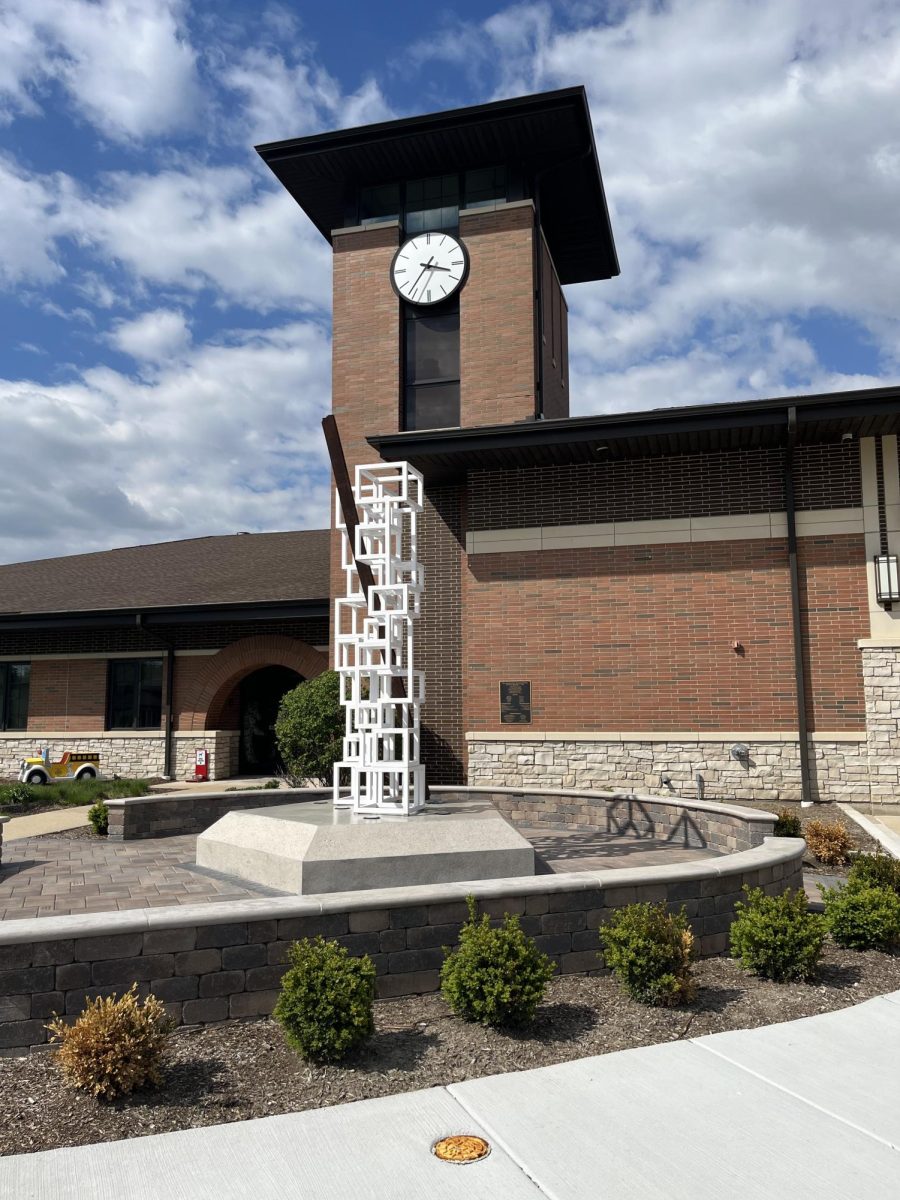
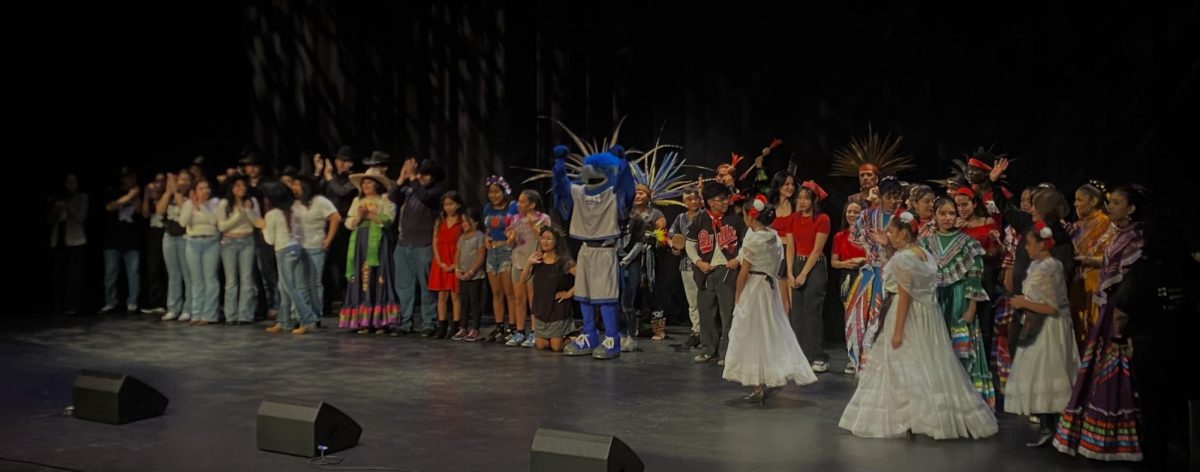

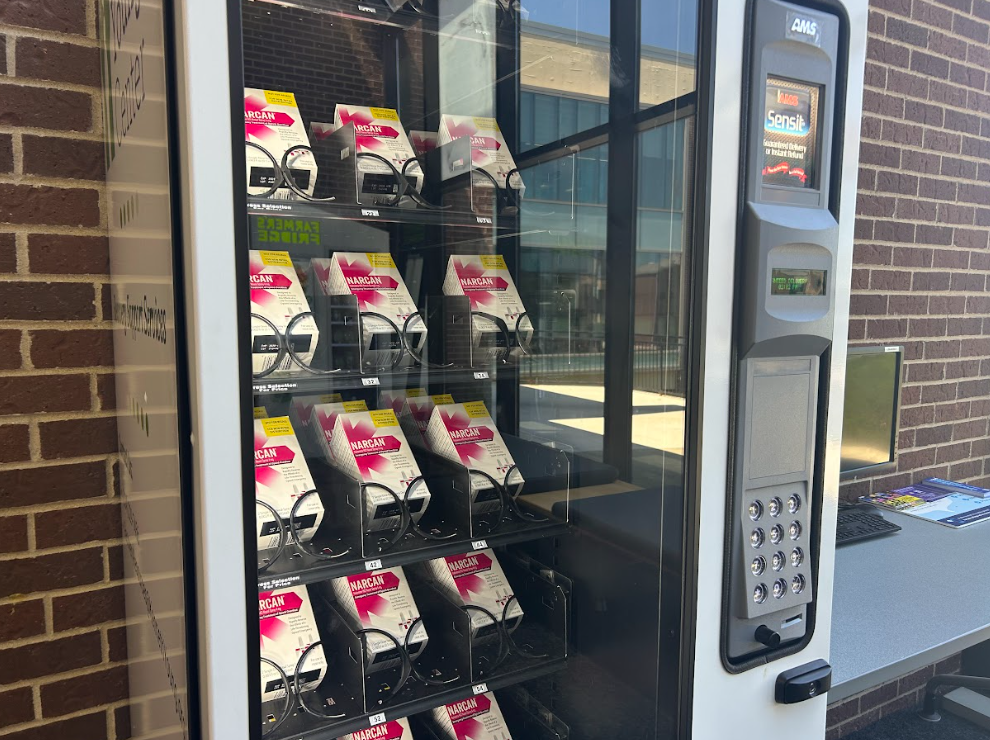
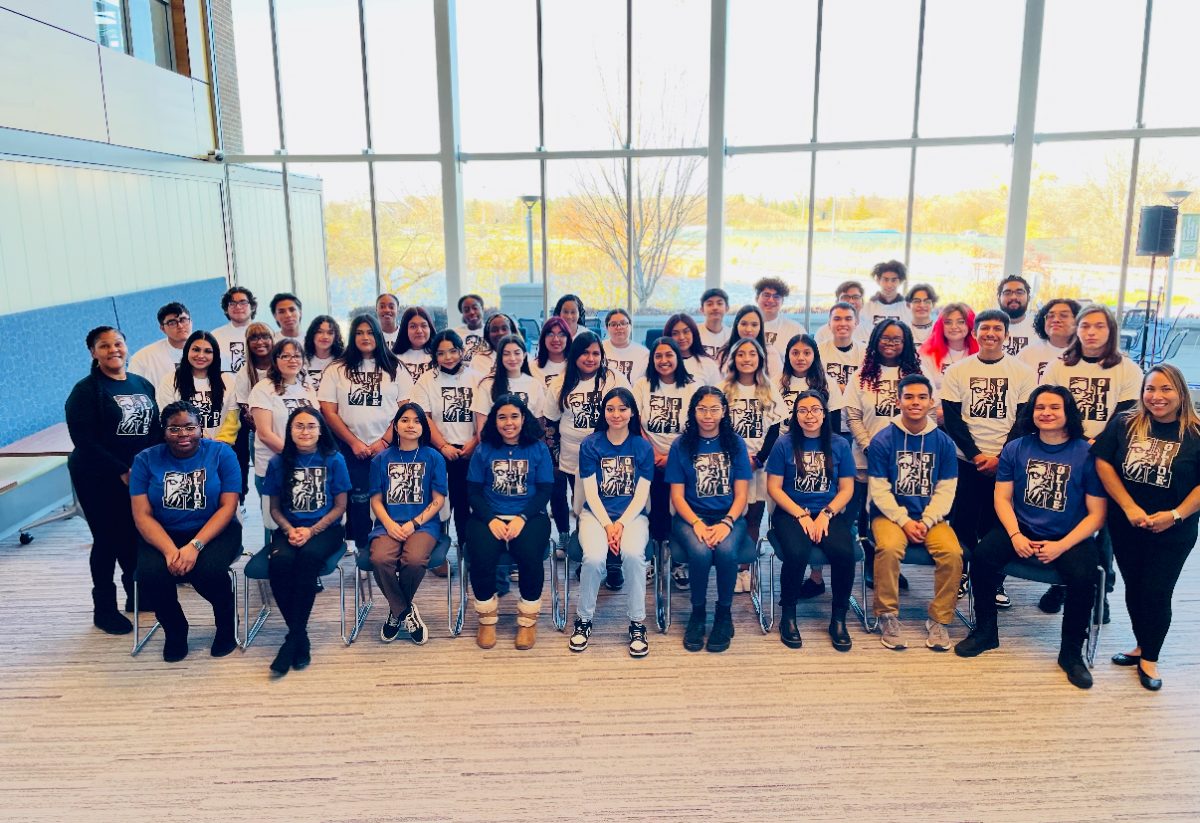
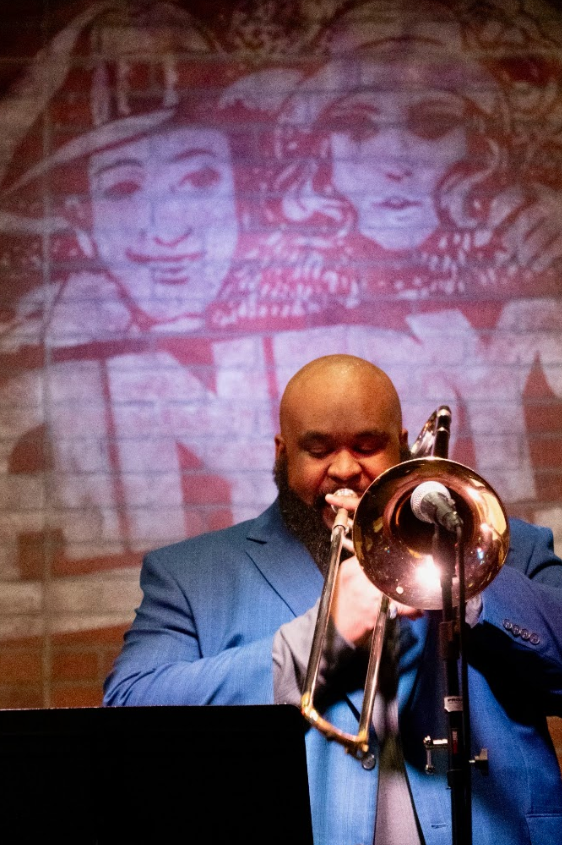






Brandy • May 24, 2024 at 8:50 pm
Just wow! So proud of you… and your direction.
Brandy
Brian Shelton • May 24, 2024 at 4:49 pm
Great work Grant!